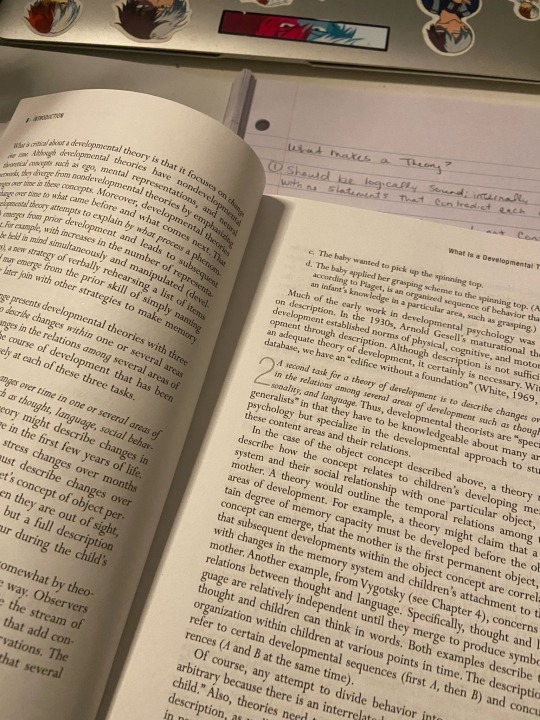#Qualitative research
Explore tagged Tumblr posts
Text
Help I have a Qualitative Research exam tomorrow and I don't even know what ontology and epistemology are.
#qualitative research#qualitative research methodology#psychology#psychology student#i kinda hate college#college life#philosophy
3 notes
·
View notes
Text
Linguistics education and its application in the workplace: An analysis of interviews with linguistics graduates (new publication in Language)
The Superlinguo Linguistics Job Interviews were a chance for me to ask people with a range of linguistics training and a range of different jobs about the links they saw between their education and their work. Asking the same questions each month, I noticed a real diversity in the thoughtful responses from people, but also some common threads.
I teamed up with qualitative researcher Dr Anuja Cabraal to look at what we could learn from the first 50 interviews. We looked at the kind of skills and knowledge people reported using in their jobs, and the advice they had for current students and job seekers. We also connected this to the larger literature on employment for linguistics students, and for humanities/liberal arts students in general. This article will hopefully help those who teach linguistics to make connections to how it is useful in a wide range of careers.
Having been so involved in running these interviews for years, it was great to work with someone who brought a fresh perspective to them. I’m also incredibly grateful to everyone who participated in the series over the years and shared their experience and insights.
I’ve also updated the lingjobs resources slides to include a summary of content from the article, and more resources.
Abstract
This paper provides an overview of post-study employability for students of linguistics. We begin with a review of the literature on employability, education, and skills. We then conduct an analysis of 51 interviews with people who studied linguistics and went on to work in a diverse range of occupations. We provide a summary of the interview participants and then conduct an analysis of the domain-specific and transferable skills reported and advice offered in these interviews. Finally, we look at how linguistics programs can use the existing literature and insights from these interviews to help their students think about careers.
Reference
Gawne, Lauren & Anuja Cabraal. 2023. Linguistics education and its application in the workplace: An analysis of interviews with linguistics graduates. Language, 99(1): e35-e57 doi: 10.1353/lan.2023.0003 [published version - OA after March 2024]
See also
Superlinguo Linguist Job Interviews full list
Linguistic Job Resources slide set (bit.ly/ling-jobs)
Doing your own Linguistics Job Interviews
#linguistics#jobs#careers#publication#new article#research#qualitative research#humanities#social science#liberal arts
46 notes
·
View notes
Text
“You’re free from just a girl or a boy”: Nonbinary children’s understanding of their gender
In recent years, research on gender diversity in early childhood has increased significantly. However, much of the published literature still focuses on children whose experiences align with binary gender norms, inadvertently excluding nonbinary experiences from analysis. We seek to explore how nonbinary children, aged five to eight, perceive and understand their gender modality and experiences.
Salinas-Quiroz, F., Aral, T., Hillekens, J., Hölscher, S., & Demos, J. (2024). “You’re free from just a girl or a boy”: Nonbinary children’s understanding of their gender. International Journal of Transgender Health, 1–18. https://doi.org/10.1080/26895269.2024.2351470
open access!
#psychblr#that is a tag huh. uh oh#qualitative research#international journal of transgender health#gender studies#developmental psychology
3 notes
·
View notes
Text


06.03.2023
My first qualitative analysis, went pretty well, I'm in love with the subject already!
#stem major#student#study aesthetic#chemistry#college#stem academia#studyblr#analyticallyminded#qualitative research#studyspiration#study hard#stem aesthetic#online chemist
23 notes
·
View notes
Text
Sociological Theory and the Canon
It's Sociology Sunday! Today we're talking theory.
What is sociological theory?
Sociological theory is a set of interrelated ideas that allow for the (1) systematization of knowledge of the social world (2) the explanation of that world, and (3) predictions about the future of that world, and which are falsifiable through empirical research.
Theory provides a possible answer to questions like, “why did this happen?” or, “why did they do that?” This means theory is speculation, not fact, but unlike “ideas” generally, theory is speculation driven by a more formal, systematic, process, which incorporates the work of previous theorists and research findings.
The Sociological Canon
Some theories are more popular than others. Some theories, while unpopular, are considered “pivotal” to the foundation of sociology. The “sociological canon” helps us identify the “popular” and “pivotal” theories.
The sociological canon is defined as the theories, ideas, and texts that are widely considered as the most important in the field of sociology (Ritzer and Stepnisky 2018)

“I’m not a regular mom theory, I’m a cool mom theory!”
The canonized theories are sort of like the “cool mom” in Mean Girls (oshowing my age here, the original 😘) – others exist, but these are the ones we tend to think of first when we think of “the mom in Mean Girls” (or, in this case, “sociological theory”).
Critics of the canon argue that the canon is not a neutral construction; rather, it is affected by power and the politics of the theory. To some degree, they are right.
The field of sociology has historically privileged theories that have testable hypotheses, known as “positivist” theories, and theories produced by white men faculty. In this, we can see that the canon, and relatedly, the field of sociology, have tended to reflect power structures in society more broadly. Which means that, yes, technically the canon is full of theories created by old white dude philosophers in Europe in the late 1800s to early 1900s. Nowadays, though, most sociologists agree that the canon includes much more than Marx, Weber, and Durkheim.
Meaning the canon is now considered to include theories from other classical theorists writing during the same time as Mark/Weber/Durkheim, like W.E.B. DuBois and Ida B. Wells. The canon has also expanded in the last 40 or so years to include contemporary theories, such as emancipatory, feminist, and queer theories. These expansions were important steps towards accounting for the reality of the field as it presently exists, and to correctly reflect the field’s foundations which expand far beyond whiteness, masculinity, and western imperial culture. Presently, women make up the (quantitative) majority of sociology faculty, and while this women majority was historically white, the number of women, including and especially women of color, in sociology continues to grow, substantially outpacing white men.
Sociological Theory and Empirical Research
Empirical research is rooted in theory.
Sometimes these theories are the driving force behind research, constituting the research question for an empirical study. You begin with the possible answer to the question, the theory, and you investigate to see if it holds up–your results may call into question some or all of the theory’s propositions. This is called “deductive reasoning.”
Theory is not always the starting point of research, though. Sometimes theory is generated from research. This process is called “inductive reasoning.” In this case, you begin with observations, draw conclusions, and from those conclusions, generate new ideas about the social world.
Deductive reasoning is often linked with quantitative research. Quantitative researchers usually have some idea of theory before forming their research question, and some quantitative research is constructed with the goal of testing (falsifying) theoretical propositions. Qualitative research, in contrast, often uses inductive reasoning, beginning with observation and developing theory as part of the study’s conclusions. This is not always the case with qualitative research, though. One approach to creating contemporary sociological theory assumes the “best” theory is constructed via inductive reasoning, and thus, begins with observation, absent of pre-existing ideas. This is known as a “grounded theory” approach, because it produces theory that is “grounded” in observation of tangible facts instead of based upon pre-existing abstract ideas. The sociologists Barney Glaser and Anselm Strauss are often credited with popularizing the “grounded theory” approach, which they outlined in their 1967 book “The discovery of grounded theory: Strategies for Qualitative Research”.
Other approaches to qualitative research, like content analysis, may start with theory or observations.
Summary:
instagram
Watch full lecture:
#sociology#science#social science#higher education#professor#research#empirical research#sociology sunday#sociological theory#theory#deductive reasoning#inductive reasoning#qualitative research#quantitative research#grounded theory#marx#durkheim#weber#dubois#classical#contemporary#teaching#lesson#studyblr#college#university#Instagram
5 notes
·
View notes
Text

Class starts next week and I am getting ready to Ace it!
#doctoral student#educational psychology#blackphdstudent#studyblr#academic research#black college girl#student#educational research#qualitative research#research design#developmental psychology
17 notes
·
View notes
Text


dusty keyboards, sunny landscapes, mind and desk - a mess 💫
#mine#mess#maxqda#qualitative research#Idk what’s going on#geography#study#desk setup#desk#messy desk#bachelor thesis
17 notes
·
View notes
Text
Answering Tumblr polls makes me feel like I'm taking part in important sociological research.
3 notes
·
View notes
Text
just conducted a successful aging assessment on an old person for my psychology practical. god, do people have experiences.
#mental health#psychology student#mental health awareness#mental health support#mental health reminders#coping#reminders#therapy#positivity#kindness#wellness#academia#psychology major#qualitative research#quantitative research#research
5 notes
·
View notes
Text
Precision Insights: Expert Quantitative Market Research Services
Our Quantitative Market Research Services help you quickly gather insights from our panellists and understand the changing consumer behaviour. Using our comprehensive services, we find the answers to the most of your questions! Follow this link to know more https://insighttellers.com/services/quantitative-research-market

#Quantitative Market Research Services#Qualitative Research#Translation#Survey Programming#Data Collection & Analysis#Secondary Research#Panel Aggregation#Contracted Work
2 notes
·
View notes
Text
Top 5 Tools For Consumer Insights

You may have heard the word ‘insight’ thrown around a lot, but what does it mean? Simply put, insights are the thoughts and opinions of your customers. They’re the things they say or do that can help you learn and grow. Understanding your customers’ insights can help you make better decisions, whether they’re related to marketing, product, or business decisions. It can also help you solve problems and improve your business. These insights are also known as “Consumer Insights.”
Customer insights are the key to understanding what your customers want and need from your product. These insights can be gathered through data analysis, customer feedback, surveys, and more.
With customer insights, you’ll be able to see the best ways to connect with your customers and build a product that meets their needs. This is crucial for any company, as leaders always seek the “why” behind a product – its purpose and mission.
It’s important to understand not only the “why” from your customer’s perspective, but also the “how”. By building your brand on these principles, you differentiate yourself as a company that provides solutions, setting yourself apart from those who simply sell products. Your customers will view you as a partner in their success rather than another cog in the machine.
Customer insights and their direct impact on your brand
The thoughts and opinions of your customers not only hold a lot of weight but can also directly impact your business’s success. A study shows that customers are unlikely to trust companies who have ratings lower than 4-stars on popular platforms such as Google My Business.
Since almost everyone googles a business before investing their time, this could be a major issue if you’re not paying attention to your online presence. Especially if you’re not responding to low ratings and reviews. These ratings are customer insights, and you can use them to improve your customer service.
Customer experience management is a delicate balance between art and science. By analyzing customer data, you can gain invaluable insights into what your customers want and how they want it.
Too often, organizations make the mistake of assuming they know what their customers want. They develop products or release new features without considering whether their target audience is ready for it or not. This is a recipe for disaster. However, if you take the time to explore customer insights, you can avoid this pitfall. The more you lean into this direction of customer-centricity, the more success your brand will find.
How to do consumer research?
The best consumer research blends art and science. It’s not quite as simple as that of course. While many have codified market research into various numbers of steps, the key tenets are the same.
· The first step is a hunch or assumption. That’s the art. It could be something as simple as: cold soda tastes better than warm soda. You’ll build your marketing strategy around it if the consumer research validates your hypothesis. That’s where science comes in.
· Step two requires you to pull the numbers and make sense of what you’re seeing in the market itself. Market research will definitely help here. · Step three is of course insight creation – what do the numbers tell you to exploit? Finally, more art, time to build a numbers-backed marketing strategy based on an outstanding consumer research report, powered by the best consumer insights research tools and datasets.
There are many ways to gather customer insights, ranging from simple feedback forms to more complex studies of user behavior patterns. The method you choose should be based on your specific goals. Different methods can help you achieve different goals. For example, if you’re trying to improve customer satisfaction, a feedback form would be a good way to collect customer insights. On the other hand, if you’re trying to understand how customers use your product, a more complex study of user behavior patterns would be a better choice.
1. Feedback Questionnaire
Customer feedback is a valuable way to gain insights while simultaneously deepening your understanding of your customers. It’s a two-way street that can help improve your internal practices while giving you an idea of how your customers feel.
Microsoft found that 77% of customers prefer brands that invite and accept customer feedback – so by simply putting in the effort to ask questions, you’re already one step ahead. Plus, taking the time to analyze the data collected from customer feedback shows a level of dedication and commitment to brand reliability and improvement – two qualities that customers value.
2. Online Reviews
Today, customer review interactions are 50% higher than they were pre-pandemic.
Reviews are your customers’ way of indirectly interacting with your brand. However, this could be a negative interaction as well. Yet, you could learn a lot from negative reviews and make improvements. Your customers expect you to do so.
According to a recent study, 53% of customers expect businesses to respond to their negative reviews within a week. When the stakes are this high, you must pay special attention to what your customers are saying about you online.
3. Online Survey
Online surveys can provide you with valuable insights into your customers’ mindsets. By providing surveys to existing customers on a regular basis, you can gather data more frequently and get a better understanding of their needs and wants.
Customer surveys can help you track the success of your webinars, understand how they interact with your product, get insights into what more they want from your product, or even understand their overall experience with your brand. By using online surveys, you can gain valuable insights that can help you improve your business and better serve your customers.
4. User-Generated Content
User-Generated Content can be defined as any unpaid piece of online content shared by your customers, for example: posts, stories, reviews, etc. Customers use platforms such as social media to show off your products, to talk about their experience with the product, or even complain. As a business, it’s important to closely monitor these activities.
5. Customer Interview
You can increase your brand’s reliability in the eyes of your customers by conducting customer interviews. This will give you first-hand insights into how they feel about your product or service.
The best way to conduct these interviews is to schedule them in advance, so you can be sure to get the most out of each conversation.
We hope that you enjoyed reading about the top 5 tools to help you with your consumer insights. The more information you have about your consumers the more likely you are to have a successful business. The tools mentioned can be a great way to get that extra information you might need! If you have any other questions or concerns about consumer insights or any other topic, please contact us anytime at www.philomathresearch.com
#b2b research#b2b market research#market research companies#qualitative research#healthcare market research#market research
0 notes
Text
From Data Dependence to Informed Insight
In the complex realm of supply chain management, understanding biases can be crucial for effective decision-making. In this episode of the Chain Reaction Podcast, we explore the phenomenon of quantitative bias, particularly as highlighted in Linda Chang et.al., insightful paper, “Does Counting Change What Counts?” Quantitative bias encompasses systematic errors in research, particularly in…

View On WordPress
#Confounding Bias#Data Dependence#Decision Making#Qualitative Research#Quantitative Bias#Research Bias#Research Biases#Supply Chain Management#Supply Chain Optimization
0 notes
Link
1 note
·
View note
Text
Revolutionise Marketing: Leapfrog Strategy Consulting - Your Experts in Marketing Semiotics
Leapfrog Strategy Consulting revolutionises marketing with its profound expertise in Marketing Semiotics. Our tailored solutions decode the cultural and symbolic meanings embedded in consumer behaviour, enabling brands to craft compelling marketing strategies. Gain a competitive edge in the market and amplify your brand's resonance with the power of Marketing Semiotics from Leapfrog Strategy Consulting.
#leapfrog strategy consulting#cultural semiotics#qualitative research#applied semiotics#brand strategy#semiotics in advertising#signs symbols and narrative#semiotic analysis
0 notes
Text
Let's Analyze your Qualitative data
Analyzing Qualitative data can be daunting. But does it have to be? What you need is someone to analyze the qualitative data you collected. And we can help with that. We offer professional analysis services for your qualitative data. You get rigorous analysis, engaging visuals and infographics for your data. Get in touch with us.

1 note
·
View note
Text
Finals during summer session blow.
Can someone(s) send me good vibes? I need to go buy more monster if I plan on turning on this research proposal and starting then finishing my data analysis by Sunday night.
I want to fall on the floor and cry, but that would take away any energy I have to write my lit review sections in the morning.
#phd life#grad school#phd student#finals#finals week#qualitative research#Qualitative research proposal#data analysis#Qualitative data analysis#I'm so close#But I'm not fully sure that I know what I'm doing#That might be the exhaustion though#And I can't go past my self-imposed deadline because band camp starts on Monday#And I have to coach#But I haven't finished choreo
1 note
·
View note